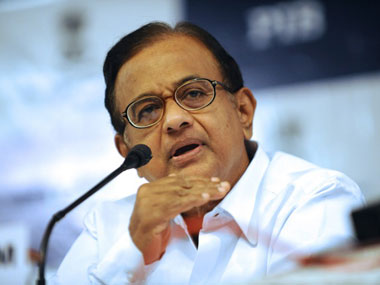By R Jagannathan
One of the compliments P Chidambaram received while presenting his 2013-14 budget last month was that in an election year, he avoided populism and stuck to the path of fiscal rectitude.
Well, one cannot be sure of that anymore.
Let’s forget that some of the budget’s subsidy and other outlays are suspicious. But populism is not only not being eschewed, but is now being embraced on the sly, now that the budget appears to have cleared the acceptability hurdle with the rating agencies.
The first signal of political pressure getting the better of good economic sense is the decision to cut petrol prices but not raise diesel rates. Under the January decision, the oil companies were to raise diesel prices by 45-50 paise a month till they are able to cover their losses fully. But over the weekend, while petrol prices were cut by Rs 2 a litre, diesel wasn’t raised. The February hike was missed. One newspaper reported that the oil companies have been advised to wait till the parliament session ends to raise diesel prices.
Once a policy decision is taken, why should the ministry keep intervening on when diesel prices should be raised or dropped? In fact, raising diesel prices on the day petrol prices were being cut would have been the best way to neutralise their political impact. But the UPA lost the opportunity. Now, even if diesel prices are raised next week, it will only show that government is afraid to implement its own reform.
[caption id=“attachment_665453” align=“alignleft” width=“380”] UPA is not only trying to win the next election by spending recklessly, but may be following a scorched earth policy for the incoming government. PTI[/caption]
The second signal is the food subsidy - which the budget placed at Rs 90,000 crore for 2013-14, including the Food Security Bill. The Congress party is pushing for a Bill that does not discriminate between the level of food subsidy being given to above poverty line (APL) recipients and below poverty line (BPL) families. The finance ministry has now discovered that the subsidy bill will bloat 38 percent, from Rs 90,000 crore in the budget to Rs 1,24,747 crore, reports The Indian Express. If Chidambaram loses this fight with the party, it will be a clear signal that he is abandoning fiscal consolidation with half-measures.
The third signal is coming from Jairam Ramesh’s Rural Development Ministry. It has proposed all kinds of changes which will have a negative effect on reforms. After first proposing a Land Acquisition Bill that will raise land prices, it has proposed a National Right to Homestead Bill to provide houses to the rural poor. Every homeless rural family will thus be entitled to 10 cents (one-hundredth of an acre) of land at a time when land prices will rise in general. Who is going to pay for this munificence?
To compound matters, Jairam Ramesh is also concocting a National Land Reform Policy that wants to limit land holdings to a maximum of 15 acres. Now, India’s problem is the atomisation of land holdings due to family separations, and not excess land holdings (though this may exist in benami forms). Development requires a strategic shift which allows more rural landowners to opt out of agriculture and seek non-agricultural occupations or productive jobs in cities. On the other hand, the productivity of land needs to be improved by greater mechanisation and providing more avenues for contract farming - and this will be helped by increasing the land ceiling, and not reducing it.
So what is Ramesh trying to achieve? How will agricultural output rise if land holdings are to be further reduced in farms that are current economically sized?
Fourth, a significant chunk of Chidambaram’s revenues this year are coming from forcing public sector financial entities to buy disinvested equity. The government’s sale of Rashtriya Chemicals and Fertilisers was a near-flop, with the LIC having to pick up a big chunk of the offering. The Nalco sale had to be curtailed due to the paucity of investor interest.
The point is this: raising revenues from disinvestment at the best of times is not the same as genuine fiscal consolidation. Raising it by transferring money from LIC to itself is an accounting fraud. And selling well below fair value in a firesale and simply not right.
“Never before has a finance minister rejected populist giveaways so decisively in an election year. Never before has a finance minister sought to win the next elections not through tax breaks and freebies, but by accelerating GDP growth and taming inflation through fiscal consolidation,” wrote Swaminathan Anklesaria Aiyar in The Economic Times soon after the budget.
He should know that Chidambaram’s good intentions have not lasted beyond the budget speech.
By failing to pursue real fiscal consolidation, and by proposing big-ticket spending for this year and the next, the UPA is not only trying to win the next election by spending recklessly, but may be following a scorched earth policy for the incoming government.
Whoever comes to the government next will find the treasure empty, and the household silver half gone.


)
)
)
)
)
)
)
)
)



